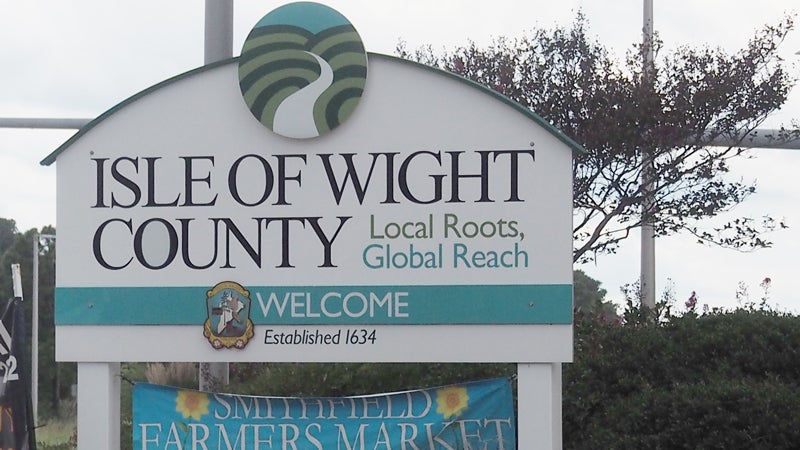Town planners approve Jersey Park purchaser’s proposed renovations
Published 5:50 pm Friday, January 17, 2025

- Green Street Housing has submitted these illustrations showing the exterior renovations, including new alternating blue and gray siding, planned for Jersey Park Apartments.
A developer of affordable housing received unanimous approval from Smithfield’s Planning Commission to move forward with renovation plans for Jersey Park Apartments.
Salisbury, Maryland-based Green Street Housing announced in 2024 that it would purchase the 80-unit West Main Street housing complex, and the adjacent 60-unit Woods Edge apartment complex.
Jersey Park will be the first to undergo renovations, which will begin this spring, followed by work at Woods Edge starting in 2026.
“We’re at the point now where we intend to close on our financing in April of this year and the hope is that we can start the construction in May,” Chase Powell, director of development for Green Street, told the Planning Commission on Jan. 14 when making his case for the commissioners to approve his request for an entrance corridor overlay review.
Smithfield’s zoning ordinance defines the entrance corridor overlay district as all land within 500 feet of each side of six corridors, including West Main Street, and mandates developers use materials “appropriate to town character.” Unlike rezoning and special use permit requests, where the Planning Commission issues a recommendation and the matter is decided by the Town Council, entrance corridor overlay reviews are solely the jurisdiction of the Planning Commission.
A report to the Planning Commission included in its Jan. 14 agenda states the applicant, Miner Feinstein Architects, is proposing to use two-tone, five-inch Dutchlap vinyl siding with white accessories, alternating between granite and steel blue paint colors on Jersey Park’s 10 two-story apartment buildings and the Jersey Park office.
The brown shingle roofing would be replaced with slate-colored architectural shingles, new white vinyl sliding windows will be installed and new doors will be painted black. The parking lot would be repaved and new landscaping would be planted.
Inside, the apartments will receive new flooring, new heating and air-conditioning and new finishes and appliances. Tenants will be relocated to vacant units while theirs are being renovated. Green Street’s purchase agreement for Jersey Park, Powell said, deliberately specified that 20% of the property or 16 units are to be left vacant to facilitate the work without having to relocate residents off-premises.
Powell said his company expects to spend $8.4 million, or $105,000 per unit, at Jersey Park, which he said would be renamed once the renovation is complete. He did not specify the new name.
The Virginia Department of Housing and Community Development awarded Green Street a $2.3 million Affordable and Special Needs Housing grant for Jersey Park last year. The grant will be combined with municipal bonds issued by the state as well as the federal low-income housing tax credit program.
The renovation, which is expected to take 15 months, will entail working on two emptied apartment buildings at a time, Powell said.
Current tenants, he said, will have to requalify based on income to move into one of the renovated units.
Jersey Park was built in 1978 with financing through a housing assistant payment contract, also known as Section 8, which provides housing choice vouchers to qualified low-income tenants through the U.S. Department of Housing and Urban Development. It began accepting its first tenants in 1981.
It was previously renovated in 2006 under a low-income use restriction agreement, or LURA, Powell said, which is why residents will have to re-certify. Residents of Jersey Park pay no more than 30% of their income under the low-income subsidy program, he said.
Once all current residents have moved into renovated units, the completed units in the final two apartment buildings to undergo construction will be leased to new tenants.
“The wait list is robust, so in the absence of that artificial vacancy the property will be full,” Powell said.
Once the Jersey Park renovations are complete, Green Street plans to begin the same renovations at Woods Edge.
Jersey Park was built in 1978 with financing through a housing assistant payment contract, also known as Section 8, which provides housing choice vouchers to qualified low-income tenants through the U.S. Department of Housing and Urban Development. It began accepting its first tenants in 1981.
Jersey Park has one- and two-bedroom units while Woods Edge includes two- and three-bedroom units.





